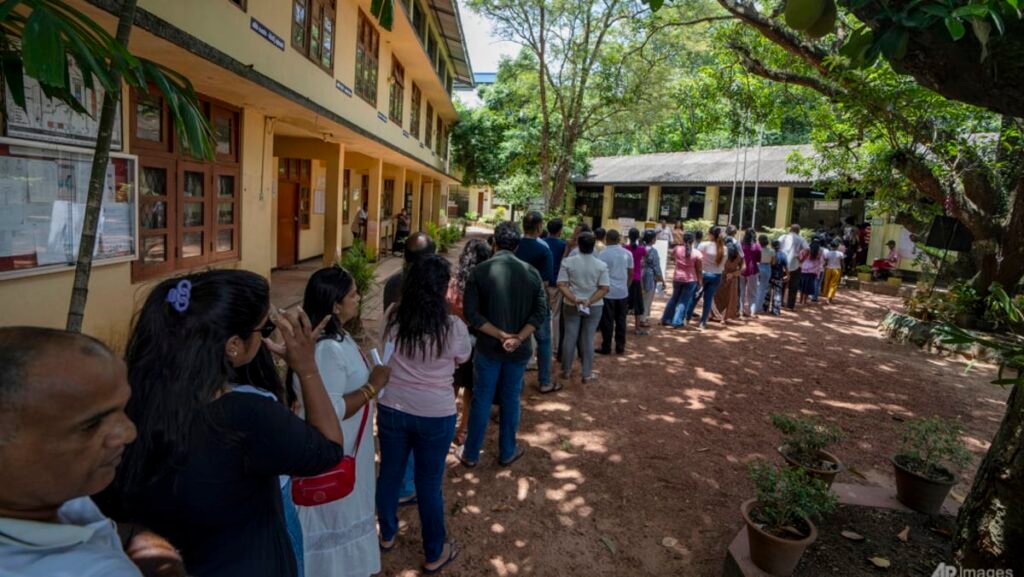Sri Lanka’s Prime Minister Ranil Wickremesinghe is facing a tough challenge in the upcoming election from two formidable contenders. Anura Kumara Dissanayake, the leader of a once-marginal Marxist party, has seen a surge in support based on his promise to change the island’s “corrupt” political culture. Dissanayake’s party has a history of failed uprisings in the 1970s and 1980s that resulted in the deaths of over 80,000 people, and he only won less than four per cent of the vote in the previous parliamentary elections.
Despite his party’s violent past, Dissanayake remains confident of securing the top job after the election. He has emphasized the need for a new political culture in Sri Lanka, free of clashes and violence. Another strong contender in the upcoming election is Sajith Premadasa, the 57-year-old son of a former president who was assassinated during the country’s civil war. Premadasa has also promised to fight against corruption and, along with Dissanayake, has pledged to renegotiate the terms of the IMF rescue package.
The upcoming election in Sri Lanka comes at a time of crisis for the country, with widespread dissatisfaction with the current government’s handling of economic issues and corruption. Both Dissanayake and Premadasa have capitalized on this discontent and are gaining support among the population. Their promises to bring about change and fight corruption have resonated with voters who are eager for a new political direction in the country.
Wickremesinghe, the incumbent Prime Minister, faces a tough battle to maintain his position against these two strong contenders. The possibility of a political newcomer like Dissanayake winning the election reflects the desire for change among the Sri Lankan population. The emergence of new leaders who are challenging the status quo and promising to bring about a new era of governance in the country indicates a shift in the political landscape.
The outcome of the election in Sri Lanka will have significant implications for the future of the country. The policies and leadership of the winning candidate will determine how Sri Lanka addresses its economic challenges, corruption issues, and international relations. The election is an opportunity for the Sri Lankan people to choose a candidate who can lead the country in a new direction and bring about positive change in governance.
In conclusion, the upcoming election in Sri Lanka is shaping up to be a highly competitive and closely watched event. The three main contenders, Wickremesinghe, Dissanayake, and Premadasa, represent different political backgrounds and promises for the future of the country. The outcome of the election will determine the direction Sri Lanka takes in addressing its economic, corruption, and political challenges. The Sri Lankan people will have the opportunity to decide who they believe is best suited to lead their country forward and bring about the necessary changes for a better future.

